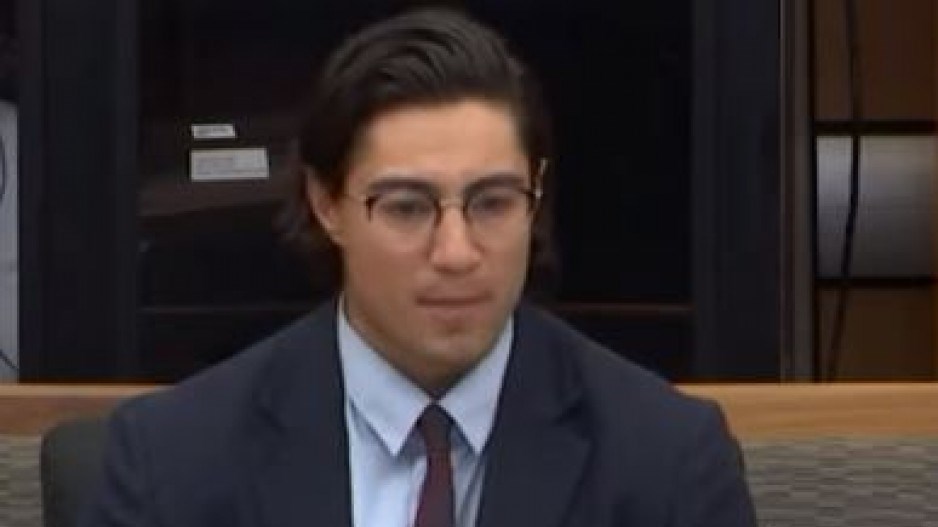The federal government raked in a $1.7 billion surplus in the first six months of the year, but it also increased federal spending by $20 billion, according to the Canadian Taxpayers Federation.
If the Trudeau government really wants to help Canadians suffering from high inflation, rather than continue to hand out rebates and credits with borrowed money, it could simply cut the GST, the federation recently told the Senate finance committee.
“Canadians are paying too much tax because the government wastes too much money,” said taxpayer federation federal director Franco Terrazzano. “If Finance Minister Chrystia Freeland’s spending wasn’t way over budget, she could provide meaningful tax relief and still lower the deficit.”
According to the federation, in just six months, between the spring federal budget and fall fiscal update, Freeland increased federal spending in the budget by $20 billion. The federal budget forecast spending of $452 billion, but the fall fiscal update has $472 billion in spending, Terrazzano said.
“The government is already on track to blow through its budget by $20 billion,” Terrazzano told the Senate finance committee Wednesday. “That’s astonishing, when we’re only halfway through the budget year. In seven months, Freeland is somehow managing to spend $20 billion over budget.”
Using the Parliamentary Budget Officer’s revenue calculator, the federation estimates that a one per cent cut to the GST would cost the federal government $9 billion. The federation said the federal government could cut the GST and reduce deficit spending simply by adhering to its original spending plans.
“Freeland could cut the sales tax from five to three per cent and still lower the deficit by keeping spending at April’s budgeted levels,” the federation said in a news release.
“Instead of giving some Canadians some money back through rebates, Freeland could provide meaningful relief to all Canadians by cutting the GST,” Terrazzano said. “The government could make life more affordable by cutting the sales tax if it stopped wasting so much money.”
The PBO has raised concerns over the lack of details around additional spending in the fall economic statement.
"In this year’s FES, the government identified $14.2 billion in new measures without providing specific details on this spending," the PBO notes. "This spending represents 27 per cent of all new measures ($52.2 billion) in the Fall Economic Statement.
"This lack of transparency presents challenges for parliamentarians and the public in scrutinizing the government’s spending plans, particularly given the magnitude of measures, $14.2 billion—the largest amount announced without specific details since the 2016 Fall Economic Statement."
The federal budget has $90 billion more in spending than before the pandemic, Terrazzano said.
He cited an October IPSOS poll conducted for the Montreal Economic Institute that found 72% of Canadians think the tax burden in Canada is too high, suggesting there would be strong support for tax cuts.
He neglected to mention, however, that that poll also found 80% of Canadians surveyed said wealthier Canadians should pay higher taxes. In other words, they actually support higher taxes, but only on the rich. The poll also found 42% of Canadians think businesses should pay higher taxes.
“Many other countries are cutting taxes,” Terrazzano said. “Ottawa is hiking gas taxes, hiking payroll taxes, hiking alcohol taxes. And the government is imposing a second carbon tax next year through fuel regulations.”
The second carbon tax he referred to is actually not a tax, but a new Clean Fuel Standard, similar to the one in already effect in B.C. for several years, which means the federal standard will have little if any impact in B.C.
The regulations require gasoline and diesel suppliers to lower the emissions intensity of gasoline and diesel by adding biofuels and renewable fuels. It is not a tax per se, though it does increase the cost of gasoline and diesel to consumers.
Increased borrowing by the federal government means increased interest costs, Terrazzano said. Citing the PBO’s estimates, he said interest rate charges could cost the federal government $252 billion through 2027.
“That’s a cost of $6,300 for every Canadian,” he said.
“It would take very modest spending restraint to balance the budget next year,” Terrazzano concluded.
Terrazzano was challenged by Senator Peter Boehm to explain just what federal spending should be cut. Terrazzano listed off pay hikes for federal bureaucrats, lavish travel expenses, and “corporate welfare” handed out to big companies like the Ford Motor Company and Bombardier as examples of unnecessary spending.
Those are relatively small ticket items, however, that would not carve out the billions that would be needed to return to pre-pandemic spending levels.
“I think you have to be careful in terms in what you’re targeting and what you’re suggesting,” Boehm said. “The big money items are social programs, defence spending and the like, and you don’t want to cut those.”




